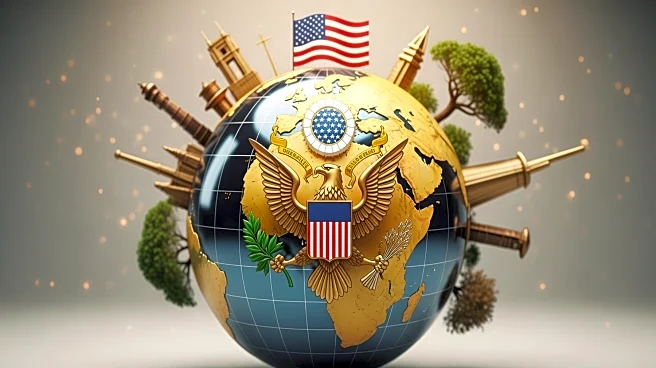What's Happening?
The United States has overtaken China as the largest foreign investor in Africa, marking a significant shift in global economic dynamics. According to the China Africa Research Initiative at Johns Hopkins University, the US invested $7.8 billion across
Africa in 2023, compared to China's $4 billion. This development is largely driven by the US International Development Finance Corporation (DFC), established in 2019 during President Trump's administration, with a mission to counter China's influence in strategic regions. The DFC has been actively supporting African firms, such as Rwandan mining company Trinity Metals, which received a $3.9 million grant to develop its mines. This investment strategy aims to secure critical minerals and metals essential for technology and defense industries.
Why It's Important?
The shift in investment leadership from China to the US in Africa has significant implications for global economic and geopolitical landscapes. Africa's rich reserves of critical minerals like lithium, cobalt, and rare earths are vital for technology and defense sectors, making them a strategic asset. The US's increased investment could strengthen its supply chain for these materials, reducing dependency on China. For African countries, this presents an opportunity to negotiate better deals and potentially develop local industries, enhancing economic growth. However, it also requires careful negotiation to ensure national interests are protected and benefits are maximized.
What's Next?
African nations are encouraged to leverage this investment shift to negotiate favorable terms that go beyond simple cash-for-minerals deals. Options like production sharing agreements and joint ventures could be explored to create more sustainable economic benefits. Additionally, there is potential for increased local processing of minerals, which could boost financial returns and create jobs. The US's continued investment in Africa is likely to intensify competition with China, potentially leading to more strategic partnerships and infrastructure development across the continent.
Beyond the Headlines
The US's strategic move to increase its presence in Africa could have long-term implications for international relations and trade policies. As African countries become more assertive in negotiations, there could be a shift towards more equitable and sustainable economic models. This development also highlights the growing importance of Africa in global supply chains, particularly for critical minerals, which could lead to increased geopolitical interest and influence in the region.

















